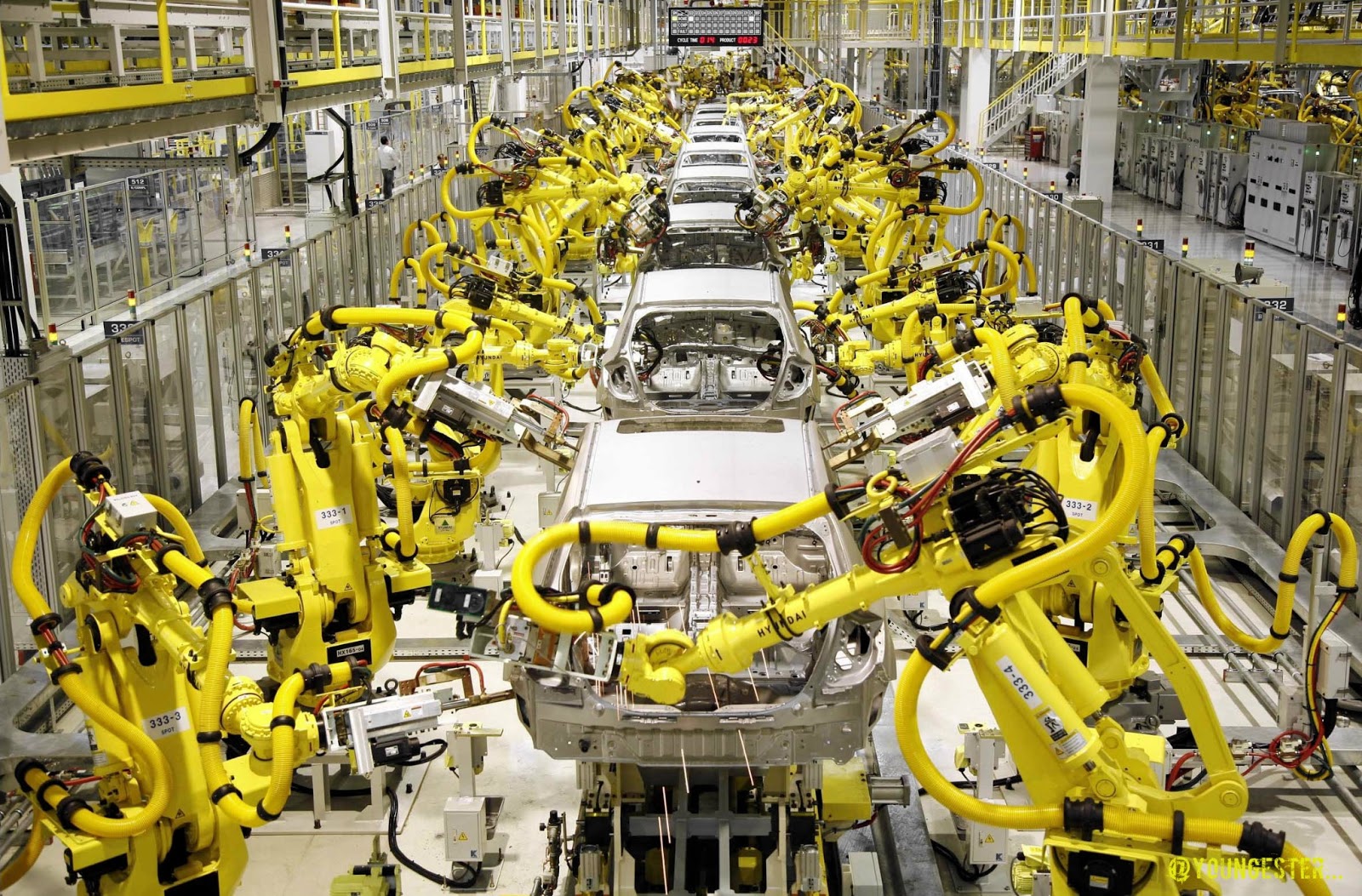Job Loss In Manufacturing: More Robot Blaming
It is striking how the media feel such an extraordinary need to blame robots and productivity growth for the recent job loss in manufacturing rather than trade. We got yet another example of this exercise in a NYT Upshot piece by Claire Cain Miller, with the title "evidence that robots are winning the race for American jobs." The piece highlights a new paper by Daron Acemoglu and Pascual Restrepo which finds that robots have a large negative impact on wages and employment.

While the paper has interesting evidence on the link between the use of robots and employment and wages, some of the claims in the piece do not follow. For example, the article asserts:
"The paper also helps explain a mystery that has been puzzling economists: why, if machines are replacing human workers, productivity hasn’t been increasing. In manufacturing, productivity has been increasing more than elsewhere — and now we see evidence of it in the employment data, too."
Actually, the paper doesn't provide any help whatsoever in solving this mystery. Productivity growth in manufacturing has almost always been more rapid than productivity growth elsewhere. Furthermore, it has been markedly slower even in manufacturing in recent years than in prior decades. According to the Bureau of Labor Statistics, productivity growth in manufacturing has averaged less than 1.2 percent annually over the last decade and less than 0.5 percent over the last five years. By comparison, productivity growth averaged 2.9 percent a year in the half century from 1950 to 2000.
The article is also misleading in asserting:
"The paper adds to the evidence that automation, more than other factors like trade and offshoring that President Trump campaigned on, has been the bigger long-term threat to blue-collar jobs (emphasis added)."
In terms of recent job loss in manufacturing, and in particular the loss of 3.4 million manufacturing jobs between December of 2000 and December of 2007, the rise of the trade deficit has almost certainly been the more important factor. We had substantial productivity growth in manufacturing between 1970 and 2000, with very little loss of jobs. The growth in manufacturing output offset the gains in productivity. The new part of the story in the period from 2000 to 2007 was the explosion of the trade deficit to a peak of nearly 6.0 percent of GDP in 2005 and 2006.
It is also worth noting that we could in fact expect substantial job gains in manufacturing if the trade deficit were reduced. If the trade deficit fell by 2.0 percentage points of GDP ($380 billion a year) this would imply an increase in manufacturing output of more than 22 percent. If the productivity of the manufacturing workers producing this additional output was the same as the rest of the manufacturing workforce it would imply an additional 2.7 million jobs in manufacturing. That is more jobs than would be eliminated by productivity at the recent 0.5 percent growth rate over the next forty years, even assuming no increase in demand over this period.
While the piece focuses on the displacement of less educated workers by robots and equivalent technology, it is likely that the areas where displacement occurs will be determined in large part by the political power of different groups. For example, it is likely that in the not distant future improvements in diagnostic technology will allow a trained professional to make more accurate diagnoses than the best doctor. Robots are likely to be better at surgery than the best surgeon. The extent to which these technologies will be be allowed to displace doctors is likely to depend more on the political power of the American Medical Association than the technology itself.
Finally, the question of whether the spread of robots will lead to a transfer of income from workers to the people who "own" the robots will depend to a large extent on our patent laws. In the last four decades we have made patents longer and stronger. If we instead made them shorter and weaker, or better relied on open source research, the price of robots would plummet and workers would be better positioned to capture than gains of productivity growth as they had in prior decades. In this story it is not robots who are taking workers' wages, it is politicians who make strong patent laws.
Disclosure: None.



